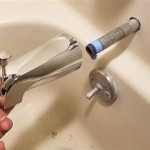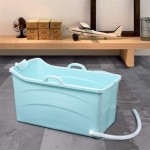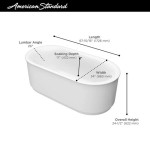How to Choose the Perfect Bathtub Material
Selecting the right bathtub material is crucial for creating a luxurious and functional bathroom. With various options available, choosing the ideal material can be overwhelming. This guide will delve into the essential aspects to consider when selecting a bathtub material to help you make an informed decision and create the perfect bathing experience.
1. Durability and Longevity
The durability of a bathtub material directly impacts its lifespan and overall performance. Consider materials that are highly resistant to chipping, cracking, and scratching. Cast iron, acrylic, and fiberglass are known for their excellent durability, making them suitable for high-traffic bathrooms or those with children.
2. Heat Retention and Insulation
The ability of a bathtub material to retain heat influences how long your bath stays warm. Cast iron is an exceptional heat retainer, but it is also slower to cool down. Acrylic bathtubs offer a good balance of heat retention and quick heating capabilities. Fiberglass, while less efficient at heat retention, provides good insulation, keeping your bathwater warmer for longer.
3. Aesthetics and Style
The bathtub material's appearance plays a significant role in the overall design of your bathroom. Cast iron bathtubs exude a classic and elegant charm, while acrylic offers a wide range of colors and styles to match any décor. Fiberglass bathtubs are available in various shapes and sizes, providing ample flexibility to complement your bathroom's aesthetics.
4. Ease of Maintenance and Cleaning
Regular cleaning is essential to maintain the beauty and hygiene of your bathtub. Choose a material that is easy to clean and resistant to stains and mildew. Acrylic and fiberglass are non-porous materials that resist bacteria growth, making them easy to clean with mild detergents. Cast iron bathtubs require more effort to clean due to their porous nature but can be kept spotless with proper care.
5. Budgetary Considerations
The cost of a bathtub material is an important factor to consider. Cast iron is the most expensive option, followed by acrylic and fiberglass. Fiberglass bathtubs are generally the most budget-friendly, making them a great choice for those on a tighter budget. Determine your budget before exploring different materials to ensure you make a financially sound decision.
6. Other Factors
In addition to the essential aspects mentioned above, consider other factors that may influence your decision, such as weight, installation difficulty, and noise level. Cast iron bathtubs are heavy and require reinforced flooring; acrylic and fiberglass bathtubs are lighter and easier to install. Fiberglass bathtubs tend to be noisier than cast iron or acrylic, which may be a concern if you value peace and quiet during your bathing experience.
Conclusion
Choosing the perfect bathtub material requires careful consideration of several factors. By prioritizing durability, heat retention, aesthetics, ease of maintenance, budget, and other relevant factors, you can select a material that meets your specific needs and preferences. Remember, the ideal bathtub material will enhance the functionality, beauty, and overall enjoyment of your bathing experience for years to come.
How To Choose The Best Bathtub Material A Comparison Guide Vevano

4 Common Bathtub Materials Pros Cons What To Buy For Your Bathroom

Choosing The Best Bathtub Material Orton Baths

How To Choose The Best Bathtub Material A Comparison Guide Vevano

Best Bathtub Material And What Each Costs 2024 Modernize

How To Choose A Bathtub What Consider In 2024 Badeloft

Choosing Bathtub Materials For A Bathroom Remodel Degnan Design Build

How To Choose The Right Material For Your Bath Houzz

How To Choose The Right Bathtub Materials For Your Home

What Is The Best Material For A Freestanding Bathtub Luxury Tubs








